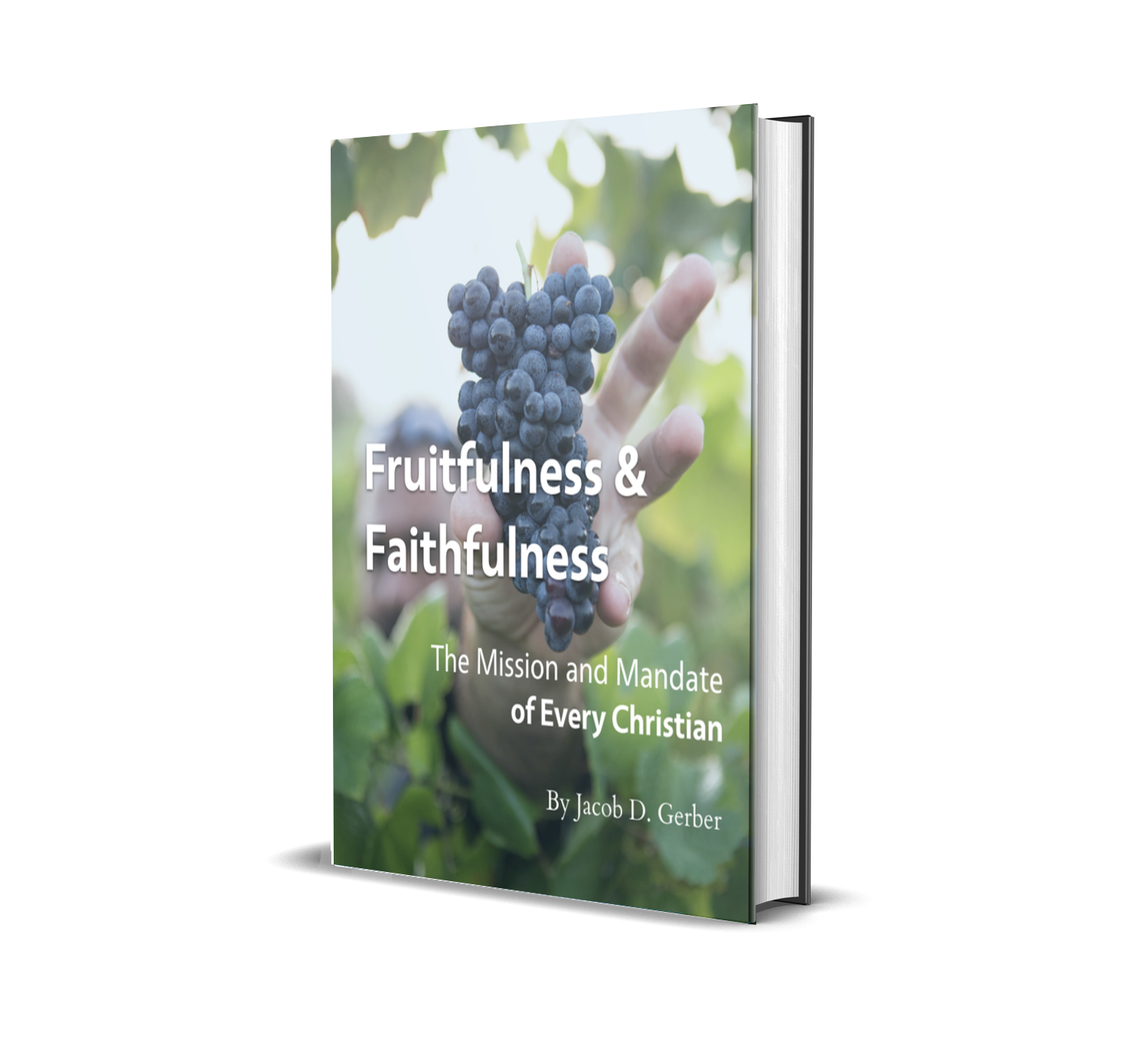Learning Not to Go Beyond What is Written (1 Corinthians 4:6)
Throughout 1 Corinthians 3–4, Paul writes several metaphors to describe the nature of pastoral ministry. Ministers have a certain kind of authority; however, ministers are not saviors to be worshiped or even celebrities to be fawned over. Instead, pastors have a singular calling upon them: to preach what is written in the Bible.
For this reason, ministers are much more like:
- Farmers who plant and water the seed of God’s Word (1 Cor. 3:5–8)
- Construction workers who ensure that the church is built exclusively on the foundation of Christ and him crucified (1 Cor. 3:10–17)
- Servants (Under-Rowers) of Christ who only teach and preach what their Master tells them (1 Cor. 4:1)
- Stewards (Dispensers) of the Mysteries of God—and of nothing else (1 Cor. 4:1)
In 1 Corinthians 4:6, then, Paul explains why he has used all of these figures, metaphors, and images: “…that you may learn by us not to go beyond what is written….”
Now, when Paul talks about what “is written,” he is invariably referring to the writings—that is, to the Scriptures. Here, however, Paul does not cite any Scripture specifically. Which part(s) of Scripture is he referring to?
What is Written…about Human Wisdom
In Richard B. Hays’s commentary on 1 Corinthians, Hays argues that Paul is referring to passages of Scripture that Paul has already cited in 1 Corinthians. Of Paul’s six Old Testament quotations, three condemn the folly of human wisdom:
- 1 Corinthians 1:19: “For it is written, ‘I will destroy the wisdom of the wise, and the discernment of the discerning I will thwart.’” (cf. Isa. 29:14)
- 1 Corinthians 3:19: “For the wisdom of this world is folly with God. For it is written, ‘He catches the wise in their craftiness…’” (cf. Job 5:13)
- 1 Corinthians 3:20: “…and again [it is written], ‘The Lord knows the thoughts of the wise, that they are futile.’” (cf. Ps. 94:11)
Together, these texts testify to the fact that God has judged human wisdom as rebellious and futile. No matter how attractive, captivating, intriguing, and wise it may seem, human wisdom is fundamentally misguided.
What is Written…about God’s Wisdom
In the other three Old Testament quotations, Paul explains the reason that human wisdom is ultimately flawed. Specifically, Paul shows that the Old Testament bears witness to the reliability of God’s incomprehensible wisdom:
- 1 Corinthians 1:31: “…as it is written, ‘Let the one who boasts, boast in the Lord.’” (cf. Jer. 9:23–24)
- 1 Corinthians 2:9: “…as it is written, ‘What no eye has seen, nor ear heard, nor the heart of man imagined, what God has prepared for those who love him’—” (possibly a loose citation of Isa. 64:4; 65:17; however, I have argued that Paul is in fact referring to other passages: e.g., Deut. 29:4; Job 28:20–22; Isa. 6:9–10; Jer. 5:21, 23)
- 1 Corinthians 2:16: “‘For who has understood the mind of the Lord so as to instruct him?’” (cf. Isa. 40:13)
The chief problem with human wisdom, then, lies in its inability to penetrate God’s wisdom, which is secret and hidden from eternity past: “…but we speak God’s wisdom in a mystery, the hidden wisdom which God predestined before the ages to our glory” (1 Cor. 2:7 NASB).
This eternally predestined, hidden wisdom is the person and work of Jesus Christ.
No matter how brilliant human philosophers, scientists, sociologists, or artists may be, all the best human reasoning in the world cannot deduce the gospel of Jesus Christ apart from dependence on God’s wisdom as revealed in the Bible.
Going Beyond What is Written
How, then, might we be guilty of going beyond what is written?
Paul is describing a fundamental problem of how we relate to our pastors and teachers. After we have studied the Bible for awhile, we can become restless for something more. We don’t want the same teaching, related in the same ways. Rather, we find ourselves wanting something that goes beyond what is written into new, unexplored territories.
So, when the pastor begins to supplement his preaching of the Bible with what the world teaches in spheres of business, politics, current events, sports, cultural trends, the arts, etc., we find ourselves intrigued. These new sources of wisdom pique our interest, and speakers who are particularly good at synthesizing the Bible with these sources can draw a sizable following.
Drifting Away from God’s Word
Inevitably, seeking after these new sources of human wisdom leads us to drift away from God’s Word. The creep is slow and subtle, but steady:
- First, we remove ourselves from God’s Word. We read it less, study it less, and meditate on it less. The Bible has increasingly less impact on our minds, our hearts, and our imaginations.
- Second, we replace God’s Word. That is, when we stop filling ourselves with God’s Word, we always start filling ourselves with something else. There’s no way to remain neutral. Over time, the world’s wisdom stakes more and more of a claim in our lives.
- Third, we eventually reject God’s Word altogether. At first, this will just be a doctrine here or there that we will reject because we prefer what the world teaches over what God teaches in the Bible. Eventually, we will reject the Bible altogether as flawed, bigoted, and backwards.
Why We Want to Go Beyond the Bible
Why, then, do we want to go beyond what is written in the Bible? The reason we feel drawn to these sources of wisdom is not that they offer us real life and vitality.
Instead, we find ourselves attracted to these sources because of our prideful, presumptuous belief that we have already mastered the gospel. We may still acknowledge that the gospel is an important part of our long-term plan, but we see the world’s wisdom as a short-term shortcut to life, joy, peace, and satisfaction.
Our flesh can always find reasons to justify dismissing the Bible as tiresome, limited, and boring.
Itching Ears vs. Sound Teaching
Paul warns Timothy against this arrogant error. In 2 Timothy 4, Paul urges Timothy to be faithful in preaching and teaching the Bible, and not to give in to the demands of those with “itching ears”:
[1] I charge you in the presence of God and of Christ Jesus, who is to judge the living and the dead, and by his appearing and his kingdom: [2] preach the word; be ready in season and out of season; reprove, rebuke, and exhort, with complete patience and teaching. [3] For the time is coming when people will not endure sound teaching, but having itching ears they will accumulate for themselves teachers to suit their own passions, [4] and will turn away from listening to the truth and wander off into myths. [5] As for you, always be sober-minded, endure suffering, do the work of an evangelist, fulfill your ministry. (2 Tim. 4:1–5)
This kind of enduring, deliberate attention to God’s word requires sober-mindedness and a willingness to suffer not only from the pastor, but from those who sit under the pastor’s ministry of the word. It means that we will not always hear from the pulpit what we think we need; however, it also means that we can have confidence that God is giving us what we really need.
This is why Paul describes pastors with all the metaphors that he uses. We can only plant and water the seed of God’s word, while we wait for God alone to give the growth (1 Cor. 3:6). We must only build on the foundation of Jesus Christ and him crucified (1 Cor. 3:10–15). We are only servants and stewards, under strict orders to dispense the provisions of God’s word (and nothing else) to God’s household (1 Cor. 4:1–5).
God’s word isn’t a part of what a pastor preaches; it is everything.
Deeper into the Bible, Not Beyond What is Written
Now, this does not mean that pastors should settle for teaching the same, trite thoughts, in the same, stale way. Instead, as a pastor, this passage calls me to the proper way to keep my teaching and preaching fresh: by going deeper into the Bible, not beyond the Bible.
The Bible bears witness to the inexhaustible glory of God in the face of Jesus Christ. Because of this, there is always something new to learn from God’s word. If we are bored with the Bible, the problem is with us, and not with what is written.
Our Enemy will always tempt us to go beyond the Scriptures. This path, however, will lead us into the ruin and misery, for the wisdom of this word is futile, worthless, rebellious, and condemned. Don’t believe the lie for even a moment that you need some wisdom beyond what God has given you in your Bible!
The question Paul leaves us with, then, is this: Do we have eyes to see, ears to hear, and hearts to imagine what God has prepared for those who love him in his Word? If not, then we need to repent from our human pride and pray that God will again captivate us with the glory of the gospel of Christ and him crucified.
FREE eBook: Fruitfulness and Faithfulness: God’s Mission and Mandate of Every Christian
Grow in God’s Plan for Your Fruitfulness and Faithfulness

Invest Your Life Well
Discover God’s breathtaking vision for the fruitfulness of his people.
Learn how to live fruitfully and faithfully in the kingdom of Jesus.
Download the free eBook now.
Get the eBook
Bonus: You’ll also get a discipleship assessment tool to evaluate areas for you to grow in fruitfulness and faithfulness.




